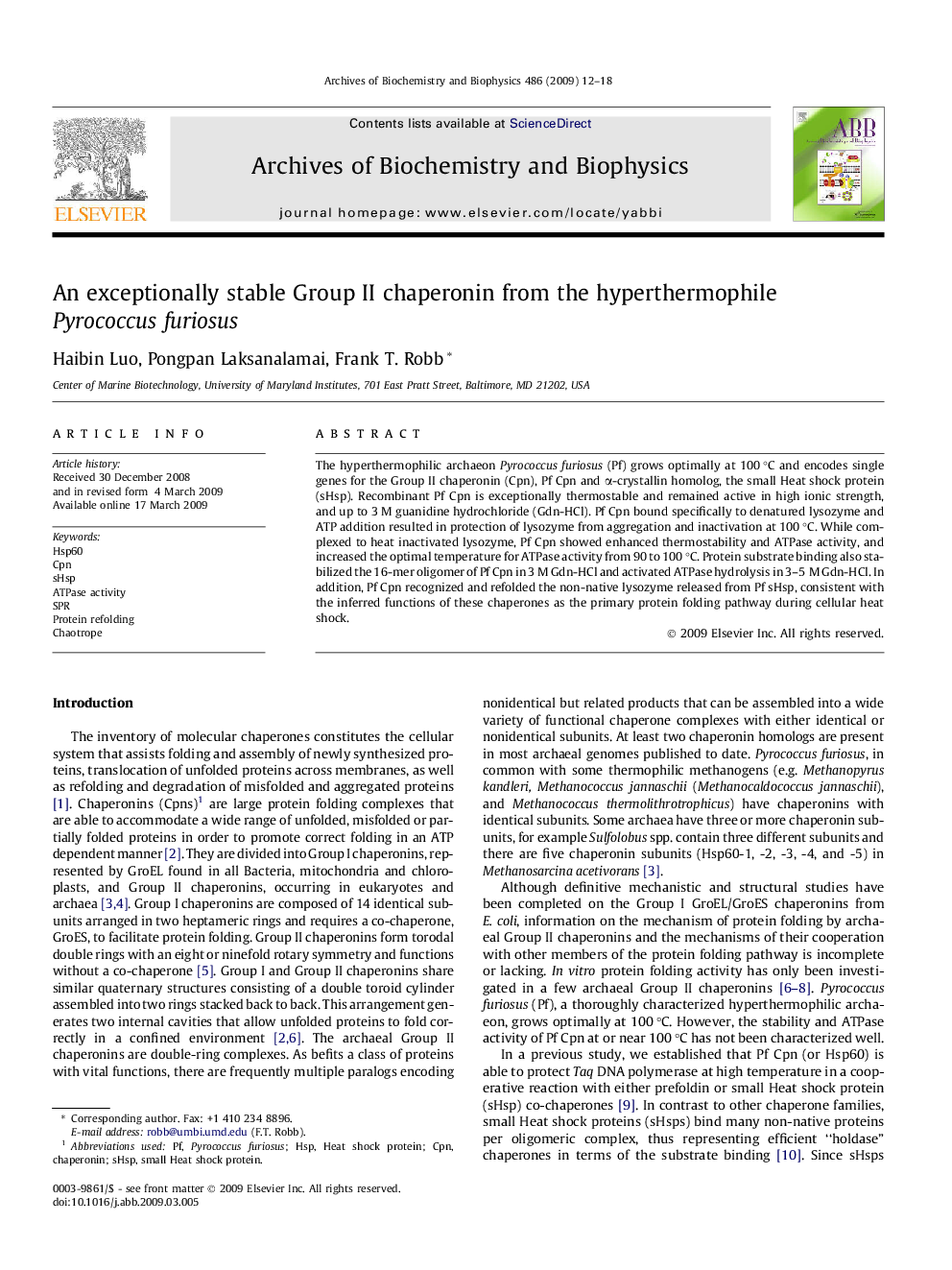| Article ID | Journal | Published Year | Pages | File Type |
|---|---|---|---|---|
| 1926415 | Archives of Biochemistry and Biophysics | 2009 | 7 Pages |
The hyperthermophilic archaeon Pyrococcus furiosus (Pf) grows optimally at 100 °C and encodes single genes for the Group II chaperonin (Cpn), Pf Cpn and α-crystallin homolog, the small Heat shock protein (sHsp). Recombinant Pf Cpn is exceptionally thermostable and remained active in high ionic strength, and up to 3 M guanidine hydrochloride (Gdn-HCl). Pf Cpn bound specifically to denatured lysozyme and ATP addition resulted in protection of lysozyme from aggregation and inactivation at 100 °C. While complexed to heat inactivated lysozyme, Pf Cpn showed enhanced thermostability and ATPase activity, and increased the optimal temperature for ATPase activity from 90 to 100 °C. Protein substrate binding also stabilized the 16-mer oligomer of Pf Cpn in 3 M Gdn-HCl and activated ATPase hydrolysis in 3–5 M Gdn-HCl. In addition, Pf Cpn recognized and refolded the non-native lysozyme released from Pf sHsp, consistent with the inferred functions of these chaperones as the primary protein folding pathway during cellular heat shock.
